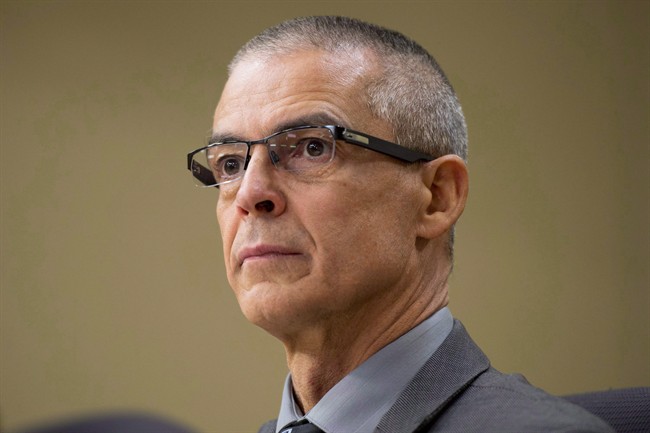Terrorism remains the most immediate threat to Canada’s national security, the Canadian Security Intelligence Service (CSIS) said in its annual report released Tuesday, as ISIS continues to use social media to recruit thousands of people, including Canadians.

The public report, which covers the country’s security concerns from 2014 to 2016, warned the terror group continues to use its large online presence to recruit people on social media to travel to Syria and Iraq.
“These extremists also pose a potential threat if they return to Canada. For instance, they may radicalize others, help with logistics and financing for those who may want to travel abroad, or engage in attack planning here in Canada,” said CSIS director Michel Coulombe.
“Terrorism is a global threat and we are not immune from its reach.”
The security agency cited several examples in its report, including the attack on Parliament Hill in October 2014 and the killing of terrorism suspect Aaron Driver in August 2016.
READ MORE: Michael Zehaf-Bibeau followed British Islam preacher convicted of inviting support for IS
Shortly before the attack on Parliament Hill, gunman Michael Zehaf-Bibeau recorded a video citing retaliation for Canada’s military involvement in Afghanistan and Iraq as his motivation and calling for similar attacks on Canadian soil. According to the RCMP, Bibeau became “increasingly aligned with terrorist ideology” in the last years of his life.
In August, terrorism suspect Aaron Driver was killed in a confrontation with police in the southern Ontario town of Strathroy. Driver was suspected of having ties to a terrorist group, after several run-ins with police. It was suggested Driver posted messages on social media that praised terrorist activities, including Bibeau‘s attack, and expressed a desire to move overseas.
Islamic State media later claimed Driver was one of its soldiers.
READ MORE: ISIS says Aaron Drive was one of its soldiers
Using social media as a recruitment tool is not a new method for ISIS. In 2015, experts estimated more than 20,000 foreigners were fighting with or supporting ISIS in Iraq and Syria – and more than 4,000 of those had come from Europe, the U.S. and Canada.
At the time, an analysis by terrorism expert J.M. Berger and data scientist Jonathon Morgan found some 46,000 Twitter accounts were used to support ISIS.
While tech companies have begun cracking down on terrorist propaganda – Twitter claimed to have deleted some 125,000 ISIS related accounts in 2016, as part of its anti-terror policies – foreigners continue to travel abroad to join ISIS.
READ MORE: More Canadians joining ISIS, according to public safety minister
In 2016, Coulombe testified before a Senate committee that CSIS and its partners were tracking approximately 60 Canadians who have returned home after fighting or attempting to fight with the so-called Islamic State. Six Canadians were also listed on a massive list of ISIS recruits obtained by Germany at the time.
A CSIS spokesperson denied to comment on the number of Canadians currently being monitored, or the agency’s investigative techniques.
“The internet gives terrorists a global reach to spread their propaganda, to attract followers and recruits, and to transfer knowledge. Understanding radicalization and what mobilizes individuals to violence is a Service priority,” said the spokesperson in an email.
In March, Public Safety Minister Ralph Goodale said there had been a “small increase” in the number of Canadians joining ISIS in recent years.
– With files from The Canadian Press




Comments